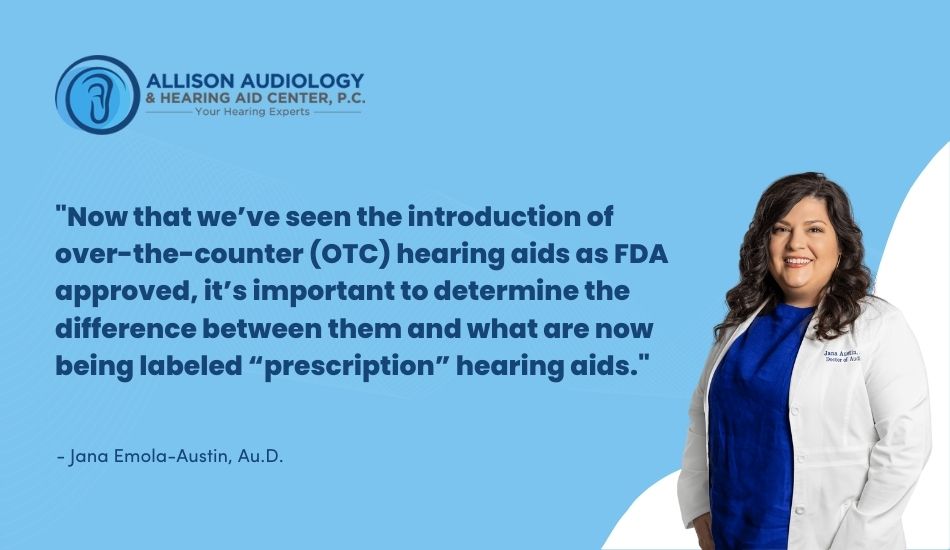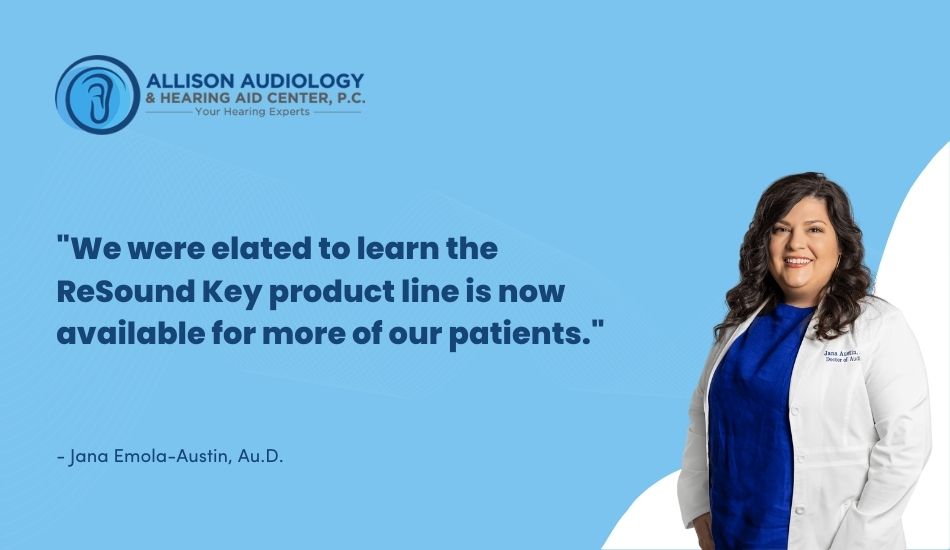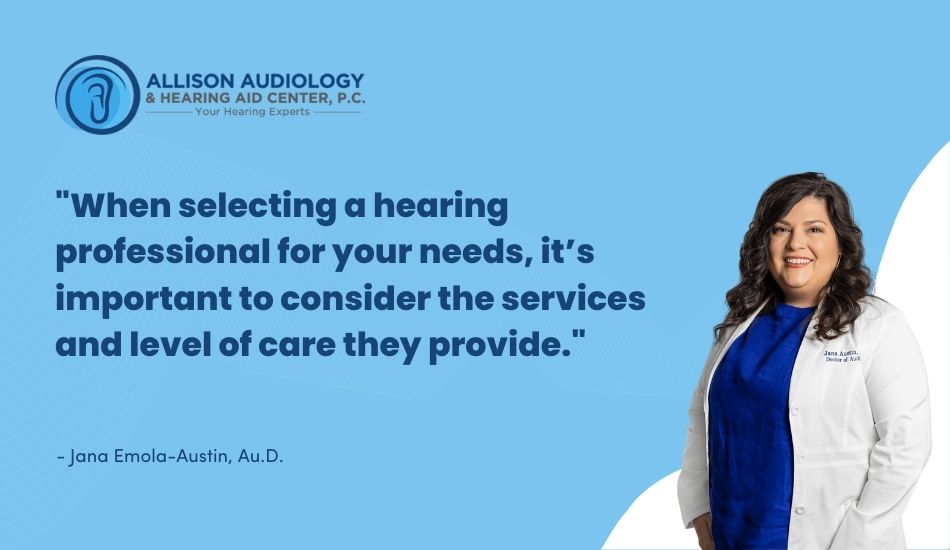For many years, over-the-counter hearing options have been available. This technology was more of a personal sound amplifier (PSAP) that simply increased or decreased sound volume.
Because of their simple design, they were considered separate from traditional hearing aids.
A traditional device is much more sophisticated in terms of amplification. It can be based on your hearing levels or prescription.
Once programmed with your test results, its primary focus is to increase soft sounds that are difficult for the user to hear while letting loud sounds pass through. For years, the hearing industry only had these two classes of hearing devices.
Now that we’ve seen the introduction of over-the-counter (OTC) hearing aids as FDA approved, it’s important to determine the difference between them and what are now being labeled “prescription” hearing aids.
Here Are The Key Differences Between The Two
At first, prescription and OTC hearing devices may sound similar. Initially, one would think “a hearing aid is just a hearing aid.” But, the differences between the two classes are quite significant.
To help visualize our two classes of hearing aid groups, let’s use eyeglasses as an example.
Cheaters or readers, as they are commonly called, are available in pharmacies, grocery stores, and many other places. You have your basic option available, and then you have higher level, more designer, and fashionable styles based on your preference and preferred level of investment.
While these eyeglasses are excellent for those who only need magnification in certain situations, there comes a time when vision loss progresses, and OTC eyeglasses are no longer strong enough. This is a great example of an OTC hearing device.
Prescription hearing aids will have a greater variety of features compared to any OTC option.
This means more capacity to reach significant degrees of hearing loss than the OTC can. It also means greater degrees of noise reduction assistance and more innovative features that allow the hearing aid to adjust based on the demands of the environment automatically.
Because it is prescription-grade, it can be customized to your needs far more accurately than something over the counter.
How Do I Know Which One I Need?
It is strongly recommended to have a hearing test from a trusted hearing care professional, not an online or app-related source. This will show the degree of hearing loss present and determine if hearing levels are within the fitting range of an OTC device.
OTC devices are designed for mild-to-moderate hearing loss; not everyone will qualify for them.
Rather than invest in an OTC option that cannot reach your specific hearing levels, it’s best to know from the start if you’re already outside of the fitting range of OTC devices.
That’s why it’s essential to start with a comprehensive hearing assessment right from the beginning.
Can I Just Take An Online Hearing Test?
Annual calibration is required on all testing equipment to ensure it is working correctly and up to a standardized code. This ensures the same patient can obtain the same results from one office to the next.
If a hearing test is done online or through an app, there is no way to ensure reliability, as there is no standardized calibration available. This means once the OTC is purchased, it’s programmed to an online prescription, which could be inaccurate from the start.
Hearing professionals also strongly encourage those interested in OTC devices to schedule a visit in their office because the problem may not be hearing loss at all.
Once the health of the ear canal is checked during otoscopy, if there is an earwax impaction present, it could cause temporary hearing loss. Any hearing difficulties may disappear after the wax is removed and the canal is clean and clear.
A variety of things can cause hearing loss. It’s best not to jump to the conclusion that you need a hearing aid when the problem may be easily resolved alternatively.
On The Fence With Your Options?
For anyone considering hearing aids and is unsure of where to start, the best option is to visit one of our offices in either Houston .
A hearing evaluation is the first step in obtaining hearing devices. Ensure it’s performed by us or another professional audiologist.
Once your hearing has been evaluated, you’ll have your prescription and will know if OTC hearing aids can meet your needs or if prescription hearing aids would be best.
If you are like many of our patients who are gathering information for the first time, you may be thinking that OTC hearing aids are the best route for you simply based on the investment aspect alone.
Many who visit our office are surprised that we offer prescription hearing aids at a similar level of investment as OTC hearing devices.
By being fit at a local provider’s office, you now have an in-person resource to go to if you have questions throughout your hearing journey.
The good news is, with such a variety of hearing aid options available today, there is no better time than now to start hearing the life you love.





